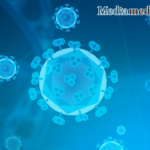
Editor's Note: The 8th Hematology Academic Conference, organized by the Chinese Society of Clinical Oncology (CSCO), CSCO Leukemia Expert Committee, and CSCO Lymphoma Expert Committee, and co-hosted by Harbin Institute of Hematology and Oncology and Peking University Cancer Hospital, was grandly held in Harbin from July 26 to 28, 2024. On this occasion, "Oncology Frontier - Hematology Frontier" invited Dr. Jian Hou from Renji Hospital of Shanghai JiaoTong University School of Medicine, to share insights on the current status, challenges, and future treatment modes of multiple myeloma (MM).Oncology Frontier – Hematology Frontier: Could you introduce the current status and challenges of diagnosing and treating multiple myeloma (MM) in China?
Dr. Jian Hou: Overall, significant progress has been made in the treatment of multiple myeloma (MM). The effectiveness and remission rates of treatments have continually improved, extending survival periods and significantly enhancing the quality of life. However, MM remains an incurable disease, with relapses being almost inevitable, posing a life-threatening risk to patients and a major challenge for clinicians. Moreover, the level of diagnosis and treatment of myeloma in China is inconsistent, with room for improvement in the standardization of diagnosis and treatment practices and accessibility to new drugs. These are some of the key challenges in treating MM.
Oncology Frontier – Hematology Frontier: Despite the emergence of new drugs, relapse and drug resistance in MM have not yet been overcome. Could you explain the mechanisms behind MM relapse and the strategies to address it?
Dr. Jian Hou: MM is an incurable disease, and nearly every patient experiences relapse. The primary reasons for MM relapse are twofold: (1) Residual tumor cells in the body cannot be entirely eliminated, even after multiple treatments. The most sensitive minimal residual disease (MRD) detection methods are limited to a level of 10^-6, and achieving MRD negativity does not equate to the complete eradication of tumor cells. These residual MM cells, which are insensitive to chemotherapy, proliferate to a certain threshold, leading to MM relapse; (2) As the disease progresses, MM cells undergo clonal evolution, increasing their malignancy and resistance to treatment.
To tackle MM relapse, we can adopt several strategies: (1) Further develop new targeted drugs for critical MM targets; (2) Implement combination treatment plans and strengthen standardized treatment strategies; (3) Most importantly, emphasize fundamental research on MM to reveal how interactions between MM cells and the bone marrow microenvironment promote relapse, which is crucial for overcoming MM relapse.
Oncology Frontier – Hematology Frontier: Could you discuss the efficacy and safety of CAR-T cell therapy in the treatment of MM?
Dr. Jian Hou: CAR-T cell therapy is a novel cancer treatment method that involves collecting a patient’s T cells and genetically modifying them in vitro to express chimeric antigen receptors (CARs). These receptors can recognize tumor cells and target them for treatment. For MM patients, BCMA CAR-T therapy, which targets B cell maturation antigen, is the most commonly used. After binding to BCMA on tumor cells, these CAR-T cells can be activated, proliferate massively, and exert a potent killing effect on MM cells. Currently, two BCMA CAR-T products have been approved in the United States and China, with an overall response rate (ORR) of 85-90% and a complete remission rate (CR) of about 60%. Notably, these efficacy data come from MM patients at the end of their treatment lines (when other therapies have failed), showing remarkable results that significantly improve and extend patients’ survival, offering new hope in overcoming MM resistance.
Oncology Frontier – Hematology Frontier: Looking ahead, how do you envision the innovation and development of MM treatment strategies? Are there any new therapeutic targets or treatment modes worth anticipating?
Dr. Jian Hou: With continuous research progress, new therapeutic targets and treatment modes for MM will undoubtedly be discovered and applied. In the past century, MM treatment mainly relied on chemotherapy. However, over the past 20 years, the emergence of small molecule targeted drugs, monoclonal antibodies, cellular immunotherapy, bispecific antibodies, and antibody-drug conjugates (ADCs) has progressively changed the treatment landscape of MM, extending patient survival. Nevertheless, MM remains incurable, and relapse is unavoidable. Finding new therapeutic targets, elucidating resistance mechanisms, and overcoming resistance are future areas that require further exploration. I believe that advancements in the MM field will continue to increase, improving patient prognosis and possibly achieving functional cures or even complete cures.
Dr. Jian Hou
- Chief Physician, Renji Hospital, Shanghai Jiao Tong University School of Medicine
- Member, International Myeloma Working Group (IMWG)
- Standing Committee Member, Hematology Branch of the Chinese Medical Association
- Standing Committee Member, Hematological Oncology Committee of the Chinese Anti-Cancer Association
- Standing Committee Member, Hematology Branch of the Chinese Medical Doctor Association and Member of the Oncology Committee
- Standing Committee Member, China Lymphoma Alliance
- Member, Experimental Hematology Branch of the Chinese Society of Pathophysiology
- Standing Committee Member, Hematology Immunology Branch of the Chinese Society of Immunology
- Chair, Hematology Immunology Committee of the Shanghai Immunology Society
- Chair, Hematology Branch of the Shanghai Medical Association
- Vice Chair, Clinical Research Committee of the China Pharmaceutical Innovation and Research Development Association


